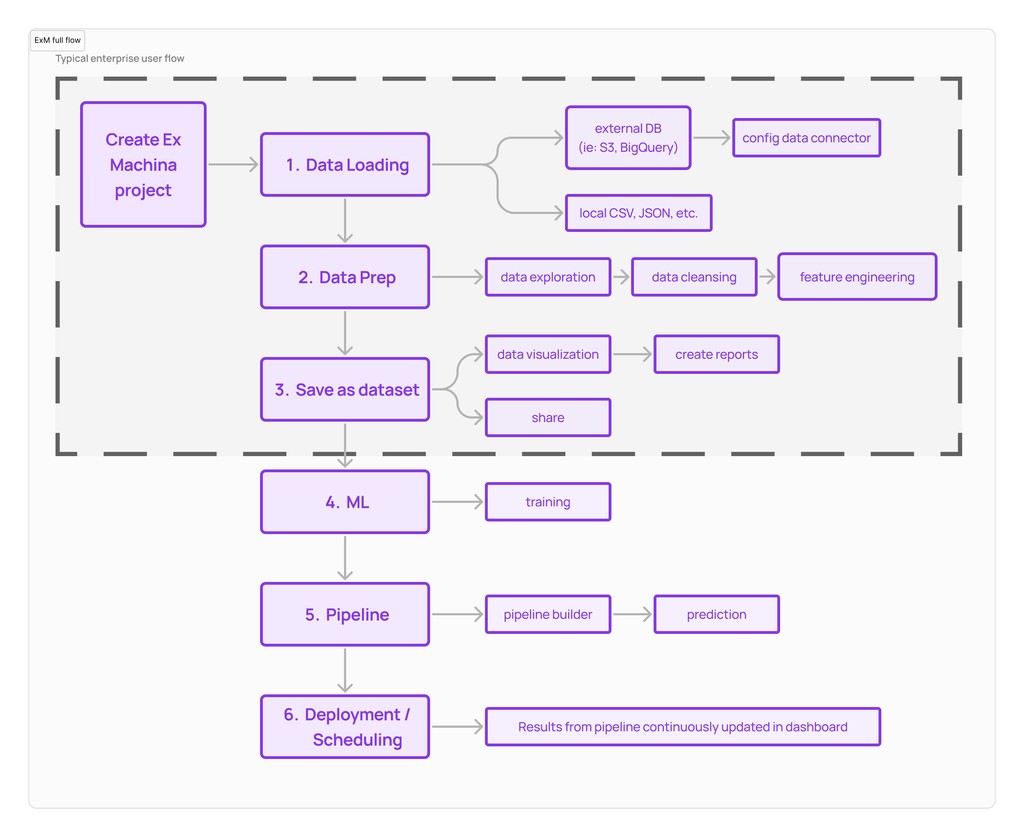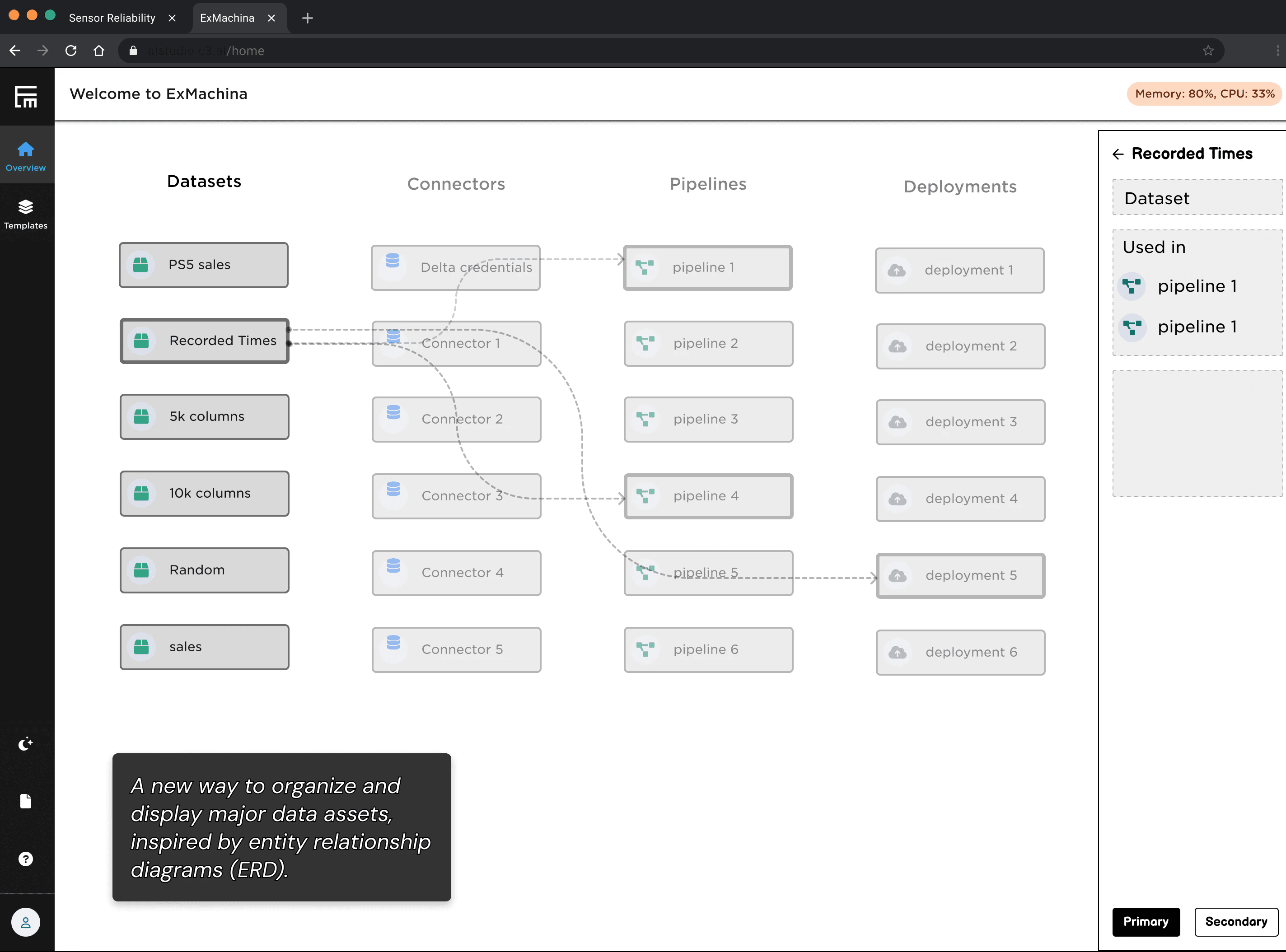C3 Ex Machina Redesign
Streamlining enterprise analytics workflow
New homepage and information architecture revamp to increase data asset visibility, streamline data analytics project setup, and increase customer adoption.
My Role
Product designer
Achievement
+28% CSAT scoring
Target user
Enterprise project leads
Timeline
Q1 2022

The background
Ex Machina is C3's low-code data science platform. Its main users are non-tech savvy customers who run data analytics projects to generate business insights that are shared within their organization to improve business operations.
The problem
Ex Machina workflows produce lots of data artifacts.
Enterprise users want to maximize re-usability of data artifacts in Ex Machina to set up projects faster.
But the old information architecture made it hard to locate specific data artifacts, and diminished Ex Machina's active use time, CSAT score, and value proposition among clients' companies.
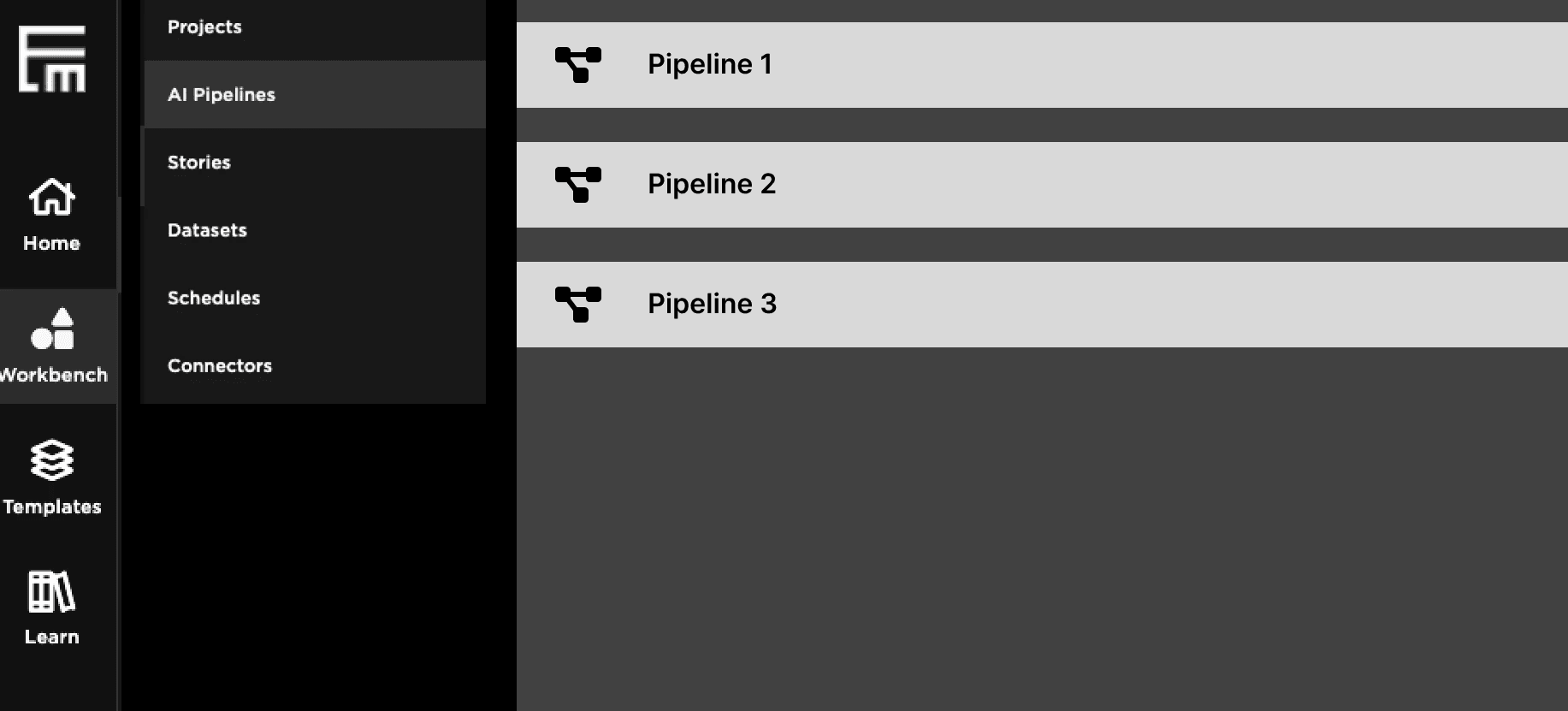
Solution & Impact
I optimized Ex Machina's information architecture, and redesigned its homepage so users can easily identify high impact / commonly used data artifacts, and re-use them efficiently. The solution resulted in + 24% CSAT scoring.
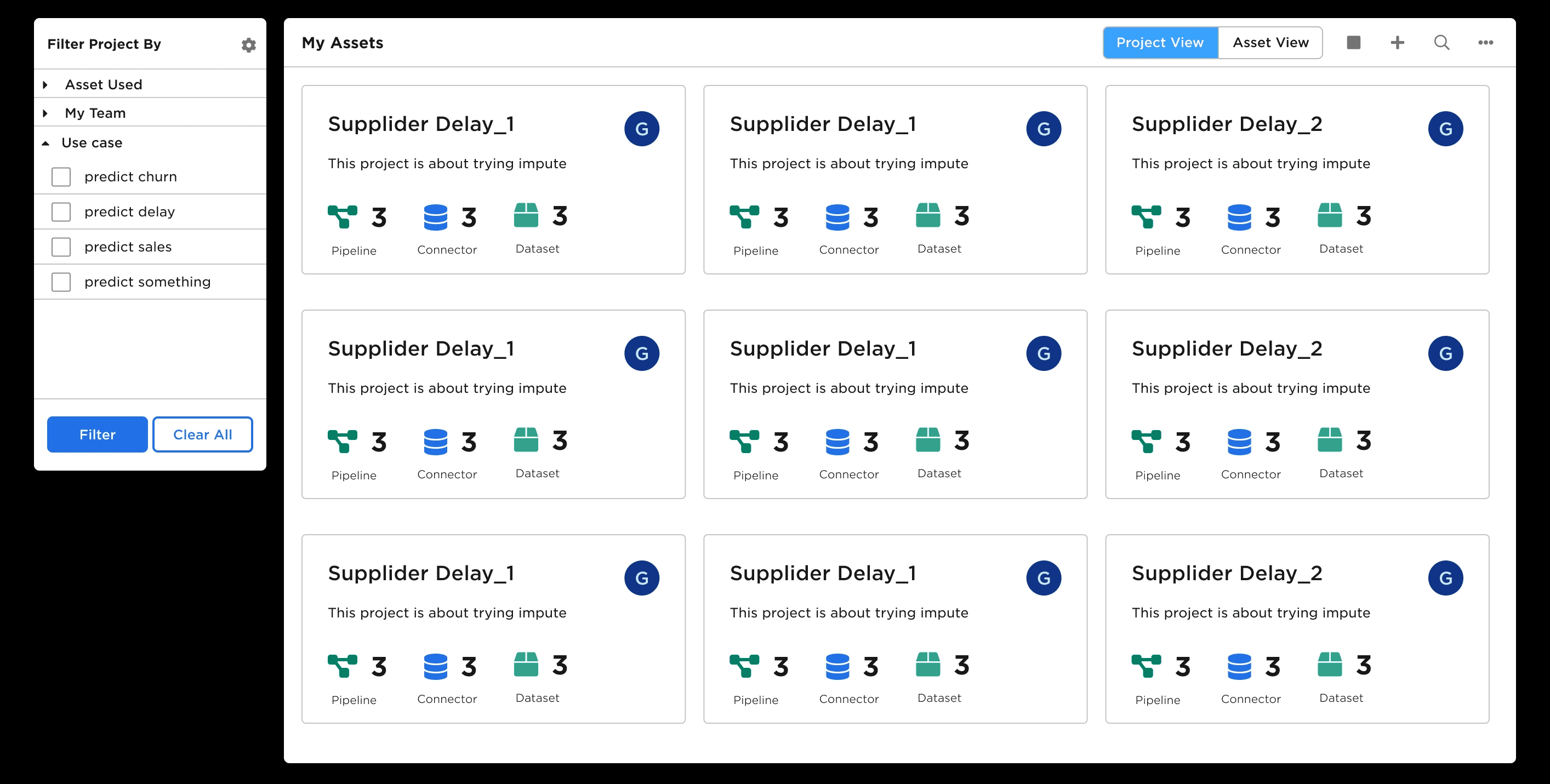
Research
I first conducted interviews with C3's customer training consultants to get basic understanding of Ex Machina, how features / workflows are taught in training, user metric trend, etc.
Next, I organized interviews with Ex Machina external users from the energy and manufacturing sectors to understand how they use the products, sentiments of features, etc. Those users are mostly project leads in their organizations, and have all received customer training from C3.


Main insights
Ex Machina use is very compartmented in enterprise context
An Ex Machina project requires coordination and collaboration between different functional teams in the client's companies to produce actionable insights.
The enterprise users we interact with are usually team / project leads.

Project leads use Ex Machina for admin tasks
Ex Machina can cover entire data analytics pipelines, but the project leads mostly use it to prep data, and get the project rolling.
"I do some basic data transformation, and I pass along to others."
Project leads want maximum data asset reusability
Setting up something new every time involves lots of coordination with more departments like IT, and takes a long time.
"Many projects are comparing variables, so most content remains same. "
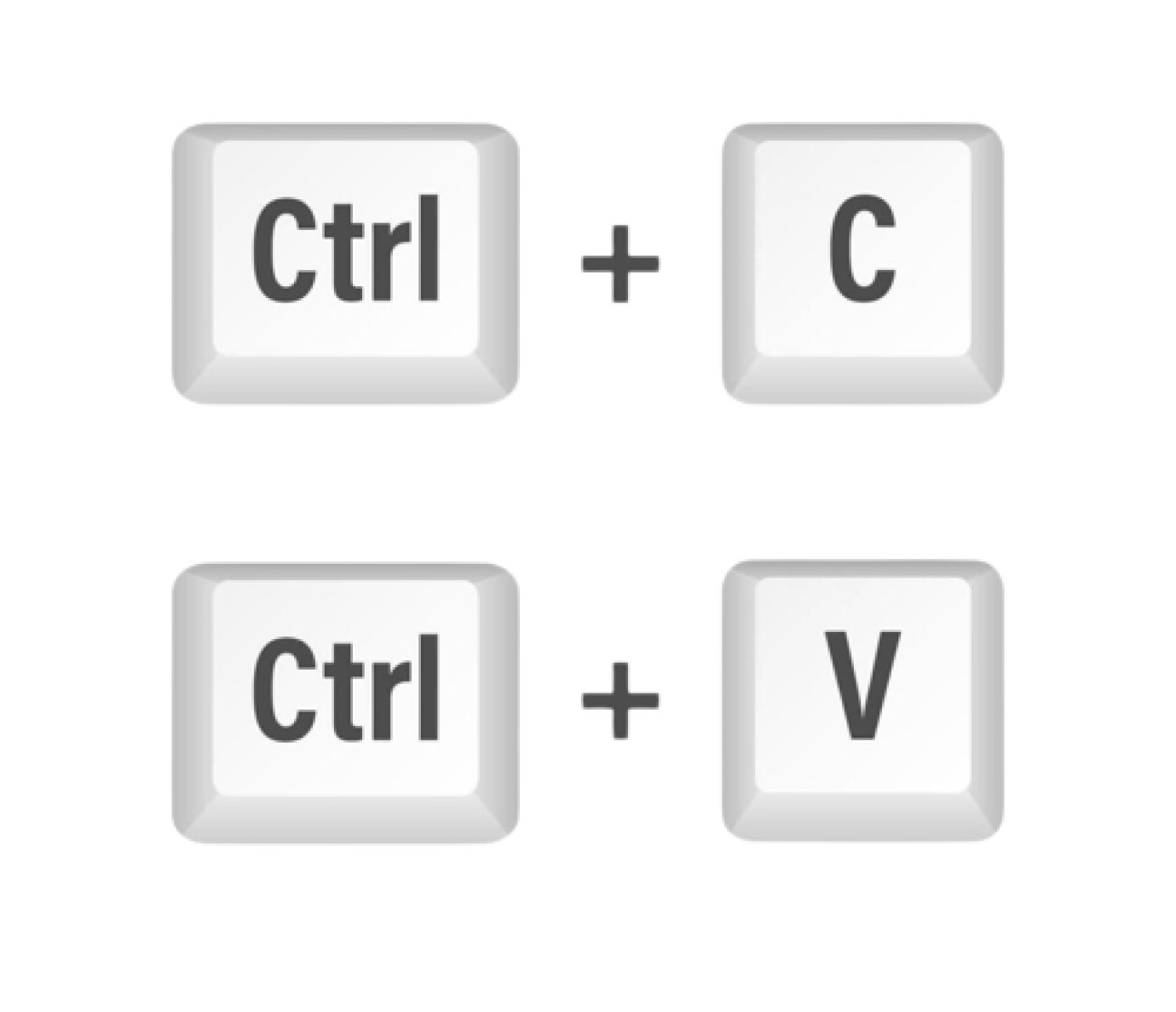
More research
The Workbench
Ex Machina supposedly has a page to organize uploaded / generated data assets from analytic pipelines. It's called "the workbench".
However, internal stat shows it’s heavily under-used.
Through heuristics evaluation, I discovered the main reason.
You can't re-use data assets if you can't find them
Workbench presented data artifacts as stand-alone items. But users think about them within context of projects. The old info architecture provides no conceptual reference when trying to find data assets.

Design iteration 1
Workbench redesign
I first prototyped different ways to improve data asset visibility in the workbench page.
User feedback
Still clunky
After rapid prototyping, I showcased the concepts to users to get feedbacks.
Most users thought the ideas had too many clicks.
They wanted more visual cueing to know what data assets were used in different projects.
Most users won't access data assets through workbench, they use the homepage.
"I know workbench contains datasets, pipelines, etc, but I typically access them in the project environment."
"Typically I directly access projects since they are already in the home page, so I typically don't click the workbench myself."
Design iteration 2
Moving over to homepage
I realized redesigning the workbench page wasn't enough, users were used to using Ex Machina projects as the mental frame to understand all other content.
So I discussed with Ex Machina PMs & developers, and collectively decided to pivot the design focus. Due to high visbility, Ex Machina homepage would first get improvements to better surface data assets to maximize ROI, and the actual workbench updates would come later.
Final design
More unified view of data assets
Highlighting important Ex Machina data assets through project-centric view on the homepage.
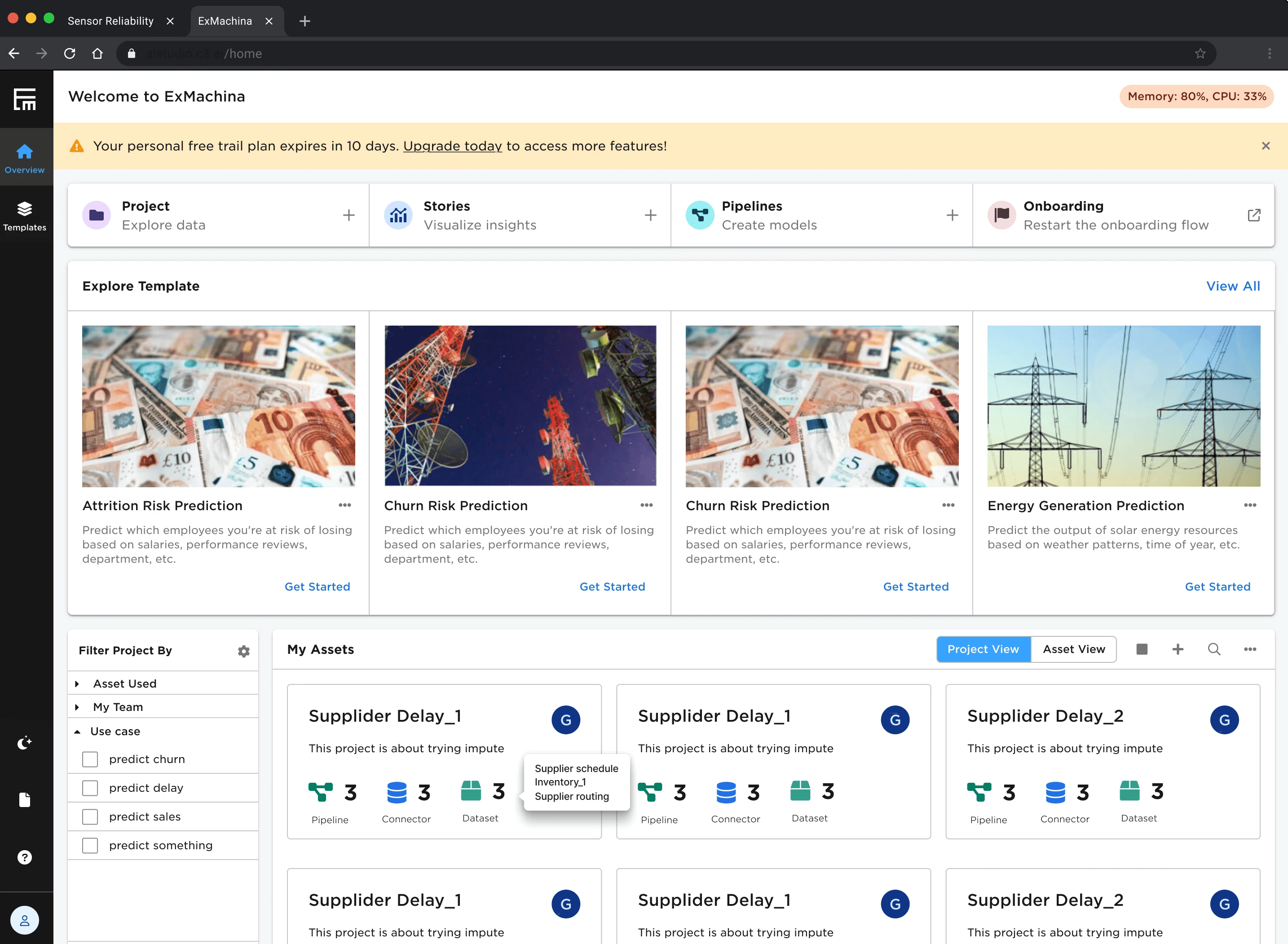
Asset-centric view to see data artifacts by categories, with most commonly used ones in each category shown on top.


